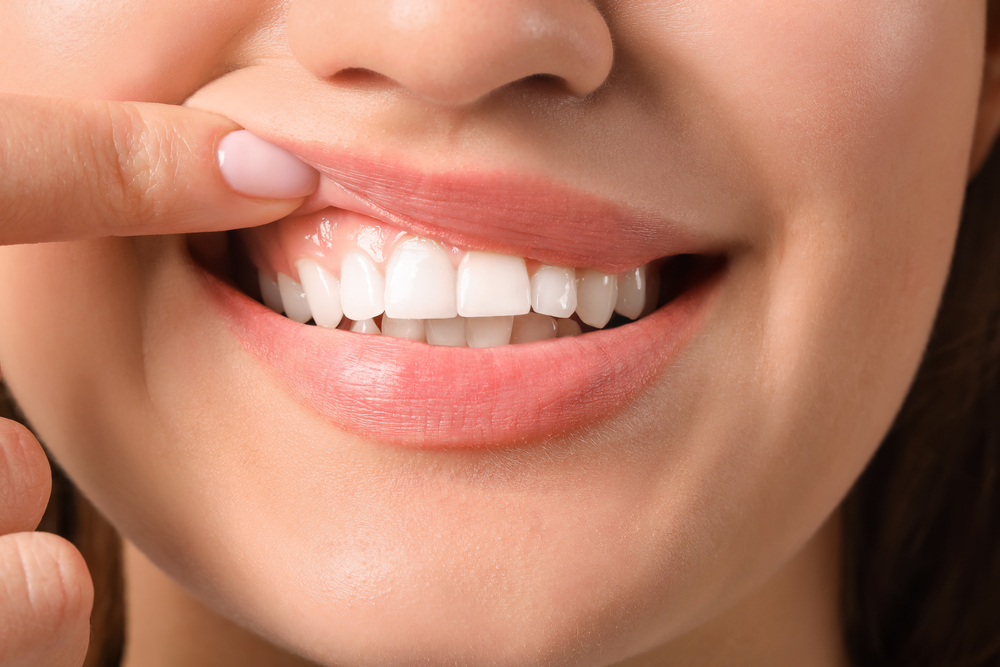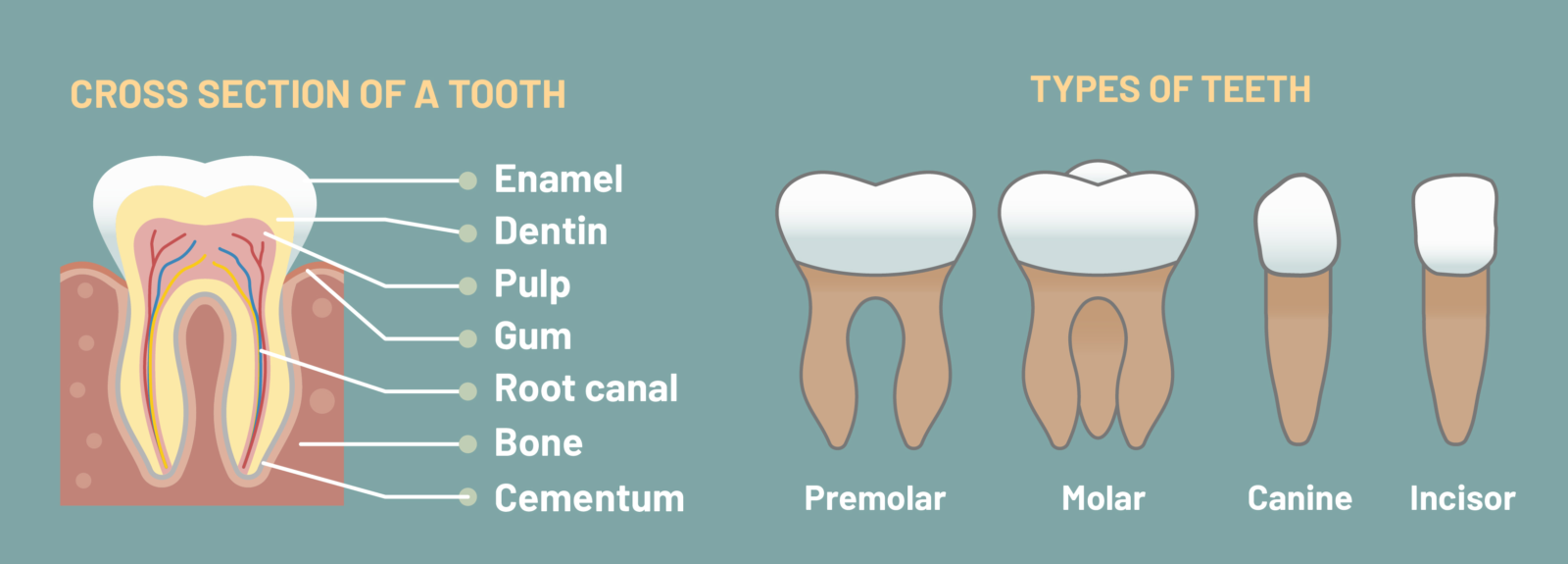Have you noticed your teeth are becoming increasingly sensitive to certain foods and drinks? Perhaps they look more discoloured than you remember, or you can see visible cracks or chips? You may have tooth enamel erosion where the enamel covering your teeth becomes worn or damaged. A variety of different factors can cause enamel erosion. Read on to discover what it is and how to treat this common problem.
What Is Tooth Enamel?
Teeth are covered by a tough outer layer of enamel, the hardest tissue in the body. It largely consists of minerals and is even harder than bone. Tooth enamel is translucent, but because it is initially quite thick, it does a great job of masking the real colour of your teeth in the dentine underneath. This is why children and young adults often have teeth that look whiter than older adults, as the enamel thins when you get older, exposing more of the real colour of your teeth.
Why Is Tooth Enamel Important?
Tooth enamel prevents harmful bacteria in your mouth from getting inside your teeth, protecting them from infection and decay. It also helps prevent unpleasant sensations due to sudden temperature changes, for example, if you eat or drink anything very hot or cold. Your teeth need this protection because they have a hard life, biting and chewing food every single day.
What Happens If Tooth Enamel Is Gone or Damaged?
Without the protective layer of tooth enamel covering your teeth, there is an increased risk that you will develop cavities. Even a tiny chip or crack in your tooth enamel will allow decay-causing bacteria in your mouth to penetrate the dentine underneath. Dentine is far softer and more easily eroded by these bacteria, so eventually, you will end up with cavities. Even a tiny hole in your tooth enamel could hide a much larger cavity underneath where you have a rotten tooth, and there is a real risk that when you bite down, the tooth may crumble.
What Causes Tooth Enamel Erosion?
Some people have tooth enamel that is weaker than others, but tooth enamel erosion is often due to other causes. These include:
Acid Erosion
Harmful bacteria are found in dental plaque, a sticky biofilm that builds up over teeth between regular brushing and flossing. These bacteria feast on leftover foods, producing acid that weakens tooth enamel which is why good oral care is so important. Repeated exposure to acid eventually causes tooth enamel erosion. The same thing can occur if you have a very acidic diet, for example, if you consume soft drinks containing citric or phosphoric acid or have fruit-based drinks that are also very acidic.
Dry Mouth
Many people have a condition called dry mouth or xerostomia, where they don’t produce enough saliva to keep the mouth moist and comfortable. Saliva is an important protective fluid that helps wash away excess bacteria and food particles, maintaining a more neutral pH. Often dry mouth can occur because of medications or because of medical treatments.
Clenching and Grinding Teeth
Clenching and grinding, called bruxism, can wear down tooth enamel, causing tremendous damage to teeth and gums. Signs of bruxism include teeth that look worn, chipped and possibly shorter than before and waking up with aching teeth and an aching jaw, as this habit is often nocturnal.
Brushing Teeth Too Hard
You don’t need to brush your teeth very hard to get them thoroughly clean, and if you brush them too vigorously, you risk eroding your tooth enamel.
What Are the Signs of Enamel Erosion?
One of the first signs of tooth enamel erosion is noticing it is no longer pleasant to eat or drink anything very hot or cold or foods that are sweet or sour. When you consume these foods and drinks, your teeth may feel increasingly sensitive or even painful. As the damage to your dentine worsens, these unpleasant sensations can increase. You may find it painful to bite down on the affected tooth, and the pain may be throbbing and continuous or will come and go. Eventually, the tooth may feel continually painful as the infection caused by the bacteria reaches the tooth nerve. At this stage, you may need root canal therapy to remove the infected nerve and to try to save the tooth.
These are why we recommend regular dental checkups at Tandara Dental Centre because we can check the condition of your teeth for any small pits or lesions that indicate the beginnings of a cavity, hopefully well before you have unpleasant symptoms.
How Can I Rebuild My Enamel Naturally?
As dentists, we are often asked, “how can I repair my tooth enamel at home” and the answer is, unfortunately, you can’t, as tooth enamel will not regrow. However, it is possible to purchase toothpaste that helps remineralise tooth enamel and contains calcium and phosphates that help harden enamel. Fluoride toothpaste is also very important because the acid in your mouth leaches calcium and phosphates out of tooth enamel. Fluoride helps to capture these minerals in your saliva so that once the mouth becomes less acidic, they are redeposited back into your tooth enamel. Ideally, prevention is the best approach.
Preventing Tooth Enamel Erosion
Good oral care helps protect your tooth enamel by removing harmful plaque bacteria that produce the acids. Make sure you brush your teeth at least twice a day using fluoride toothpaste, and it’s essential to floss your teeth daily. If you find flossing tricky, please remember we are here to help you and can show you easy ways to floss effectively or discuss other tools like interdental brushes that you may find simpler to use.
Try to avoid snacking on starchy, sugary and acidic foods, and if you want these foods, have them as part of your main meal when your mouth produces more saliva to help neutralise these acids more quickly.
Drink plenty of water to ensure you can produce lots of saliva. If you have a dry mouth, try chewing sugar-free gum to help stimulate saliva production. Ideally, choose a gum containing xylitol as this helps disrupt the growth of harmful bacteria.
When to See a Dental Professional for Help?
If you are experiencing tooth sensitivity, it is always worth having a dental checkup before trying any home remedies. Our dentists at Tandara Dental can assess your teeth for signs of acid erosion. If we find any signs of tooth enamel erosion, we can provide suitable treatment to fix the dental erosion. If you only have tiny pits or lesions on your teeth, we may suggest professional applications of fluoride to help re-harden the enamel covering teeth. This type of enamel repair combined with an improved oral care routine may be enough to fix this dental problem.
What Happens If Enamel Is Gone?
When tooth enamel is gone, we can provide suitable restorative treatments such as dental bonding. This simple and cost-effective process uses tooth-coloured composite resin applied directly to the tooth to help mend and restore it. Modern tooth decay treatment uses the same material to mend small to medium-sized cavities. More extensive damage can be mended using porcelain fillings or crowns, and modern porcelains look and feel incredibly natural and are very hard-wearing.










